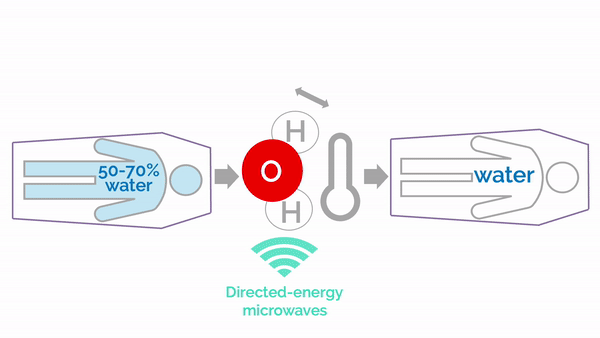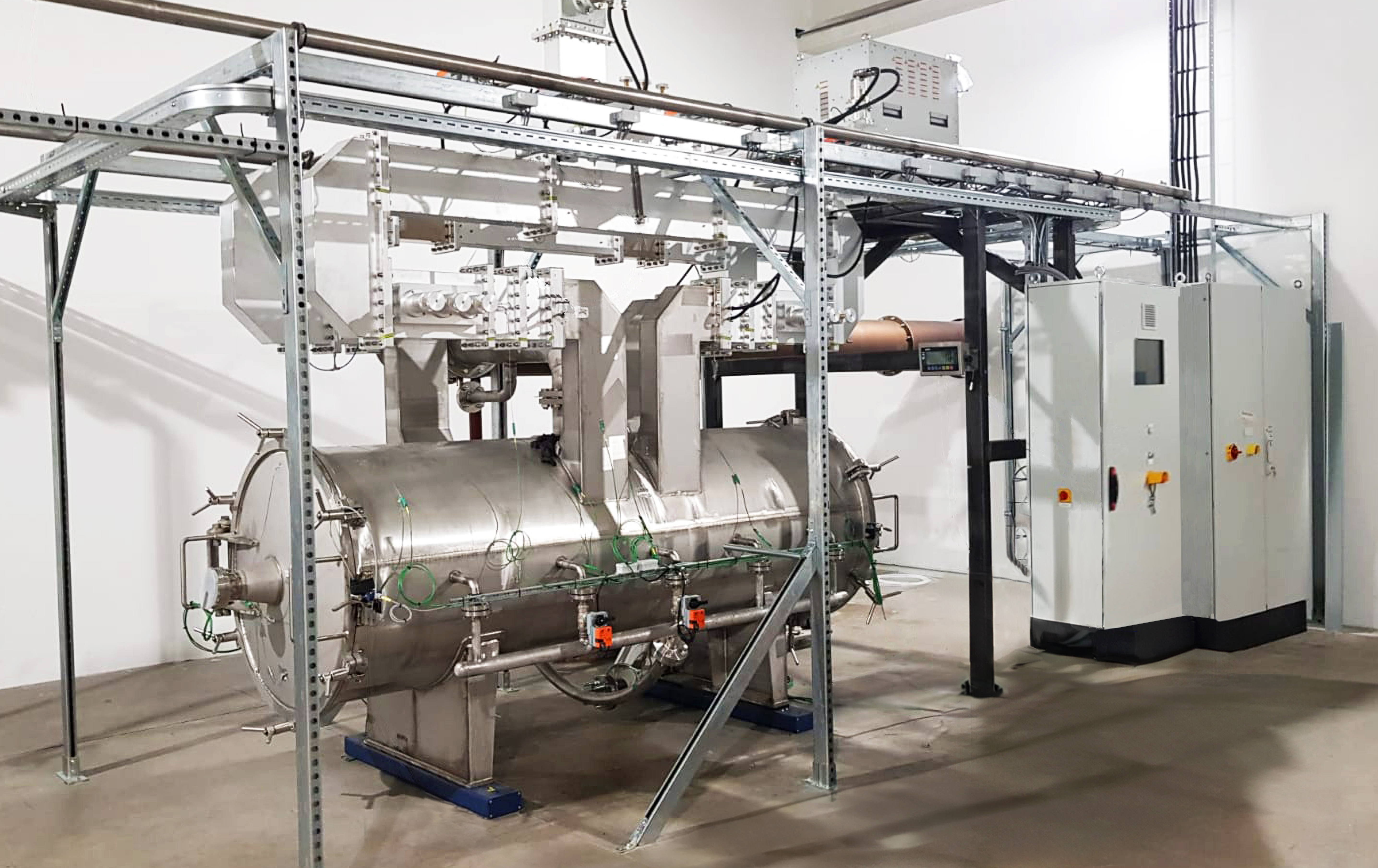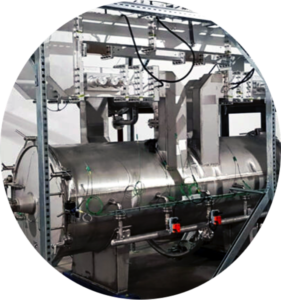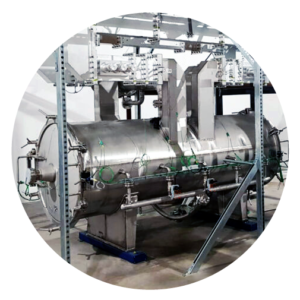Why Microwaves?
Neo Joule cremators benefit from that problem.
Our microwaves target water molecules and use them to volumetrically heat the process.

How does the Neo Joule Cremator work?
Watch our video to learn how
the Neo Joule Cremator works:

- All electric
- Directed-Energy Microwave
- <3 Tonnes
- 1.7m x <3m (MKII chamber size)
- Removable insert tray
- Motorised and safety interlocked, vertical opening doors (MKII)
- Managed gas flow
- Gas abatement technology (R&D 2023)
-
Estimated cycle time:
~90 minutes -
Working temperature:
100-800 °C -
Energy use per cycle:
50 - 225 kWh (max. demand ~150 kW)
Features (based on the R&D unit for illustration)
How is Neo Joule Sustainable & Environmentally responsible?

renewables and the
Neo Joule Cremator is
net zero carbon

How could Neo Joule save me money?

- No rebricking - EVER!
- Save $£€¥ over system lifetime

- Low cycle cost
- Ambient-to-ambient
- Switch-on to use, Switch-off when done
(non-microwave) cremators

Delivery and install designed to be easier, lower cost and shorter
- Deliverable by standard road container
- Assembly on site
- Minimised disruption for historic buildings
Extended warranty as standard
How is Neo Joule safer?

No hot casket insertion

No hot raking out


What are the Neo Joule applications?
Compact and light-weight with low infrastructure requirements.
The Neo Joule cremator chamber is <3 m maximum dimension, weighs <3 Tonnes and requires only 150 kW power.
Meaning it can go almost anywhere it's needed and run off renewables or a local mobile low power generator.
How does Neo Joule compare?
The Neo Joule cremator has significant advantages over traditional gas cremators and electric oven systems.
Gas |
Electric Oven
|
Microwave |
|
|---|---|---|---|
| Typical system weight | 12 Tonnes | 20 Tonnes | 3 Tonnes |
| Typical footprint | Varies | 10m x 7m | Approx. 5m x 4m |
| Construction | Mild Steel & Brick | Mild Steel & Brick | Stainless Steel |
| Initial start-up | Days | Days | Minutes |
| Energy use per cycle | 375 - 1450 kWh (e equiv) |
40 - 250 kWh | 50 - 225 kWh |
| Cycle time | ~90 minutes | 90 - 120 minutes | ~90 minutes |
| Typical rebricking | 2000 cycles | Unknown | Never |
| No rebricking | ❌ | ❌ | ✓ |
| Removable / Exchangeable trays | ❌ | ❌ | ✓ |
| Low temperature insertion | ❌ | ❌ | ✓ |
| Switch-on / Switch-off | ❌ | ❌ | ✓ |
| Lower maintenance | ❌ | ✓ | ✓ |
| Net carbon zero | ❌ | ✓ (with Green Energy) | ✓ (with Green Energy) |
| Sustainable | ❌ | ✓ | ✓ |
| Environmentally responsible | ❌ | ✓ | ✓ |
| Cost of ownership | $$$$$ | $$$ | $$ |





